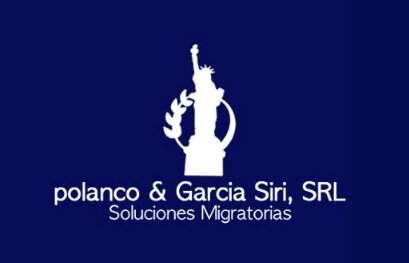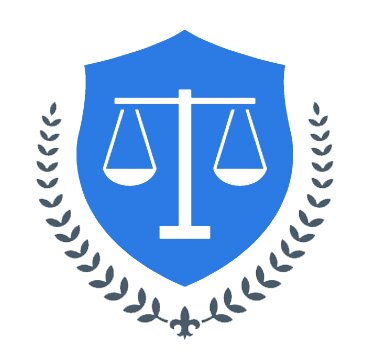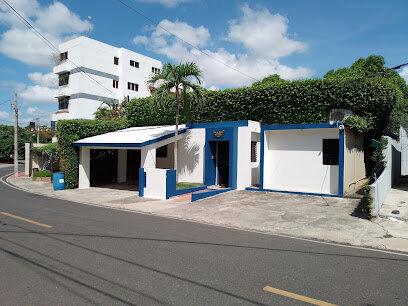Best Animal Law Lawyers in Santiago de los Caballeros
Share your needs with us, get contacted by law firms.
Free. Takes 2 min.
List of the best lawyers in Santiago de los Caballeros, Dominican Republic
About Animal Law in Santiago de los Caballeros, Dominican Republic
Animal Law is a developing field in the Dominican Republic, and Santiago de los Caballeros is no exception. This area of law deals with the protection, regulation, and treatment of animals, whether domestic, farm, or wild. The Dominican Republic is making progress in recognizing animal rights and welfare, most notably through the enactment of Law 248-12, which sets forth the basic rights, protections, and sanctions related to animal welfare throughout the country. In Santiago de los Caballeros, local authorities are increasingly attentive to compliance and enforcement, addressing concerns related to pet ownership, animal cruelty, and public health.
Why You May Need a Lawyer
There are several common circumstances where consulting a lawyer specializing in Animal Law can be crucial:
- Dealing with accusations or charges of animal cruelty or neglect
- Addressing issues of noise, odor, or property damage caused by pets
- Resolving disputes over pet custody in divorce or relationship breakups
- Challenging fines or sanctions imposed by local authorities for violations of animal welfare regulations
- Reporting or seeking action against neighbors or businesses suspected of animal mistreatment
- Pursuing compensation after attacks or injuries caused by animals
- Navigating the legal requirements for registering, breeding, or selling animals
- Understanding and defending your rights as a pet owner
- Defending businesses such as pet shops, animal breeders, or transporters accused of violating animal laws
Local Laws Overview
The cornerstone of animal protection in Santiago de los Caballeros is Law 248-12, which provides comprehensive regulations concerning animal welfare across the Dominican Republic. Key aspects include:
- Definition of Animals: The law covers domestic animals, farm animals, and, to some extent, wild animals.
- Prohibition of Cruelty: Acts of abuse, neglect, or cruelty towards animals are strictly prohibited. This can include physical abuse, abandonment, failure to provide food or shelter, and improper confinement.
- Registration and Identification: Certain species, especially dogs, may require registration and identification, and there are regulations on dangerous breeds.
- Sterilization and Breeding Controls: There are local programs promoting sterilization to control stray populations and requirements for responsible breeding.
- Sanctions: Offenses can be subject to administrative fines, animal removal, and, in severe cases, criminal prosecution.
- Sale and Transport Regulation: The law sets standards for the humane sale and transport of animals, with specific requirements for businesses and individuals.
- Reporting Mechanisms: Citizens can report suspected animal abuse to local authorities or designated organizations.
Frequently Asked Questions
What is considered animal abuse under Dominican law?
Animal abuse covers any act of intentional harm, neglect, or failure to meet basic needs such as food, water, shelter, and medical care. Additionally, abandonment and cruel confinement are also categorized as abuse.
Can I report a neighbor for mistreating their pets?
Yes, if you suspect animal cruelty or neglect, you can report it to local authorities, such as the Policia Nacional, or to municipal entities responsible for animal welfare.
Are there restrictions on owning certain breeds of dogs in Santiago de los Caballeros?
Yes, specific regulations may apply to "potentially dangerous breeds." Owners may be required to register these dogs, use muzzles, and follow additional safety protocols.
What are the penalties for animal cruelty?
Penalties range from monetary fines to the removal of animals from the owner. Severe or repeated offenses can lead to criminal prosecution and imprisonment as per Law 248-12.
Do I need to vaccinate or register my pets?
Yes, vaccination-especially rabies-is required by law. In some cases, such as for certain breeds of dogs, registration with local authorities may also be necessary.
What can I do if a stray animal attacks me or my pet?
Report the incident to the local health department or municipal authorities. You may also be entitled to seek compensation, especially if negligence can be established against an individual or institution.
Am I allowed to breed or sell animals?
Yes, but there are regulations regarding breeding, selling, and transporting animals. You must comply with local licensing, welfare, and sanitary standards.
How can I participate in animal protection activities locally?
Several animal welfare organizations in Santiago de los Caballeros work with volunteers. You can join or support these groups, or participate in awareness campaigns and sterilization drives.
Is it legal to euthanize a pet?
Euthanasia is only permitted for justifiable medical or humane reasons and must be performed by a licensed veterinarian using approved methods.
What should I do if I am accused of violating animal protection laws?
It is recommended to seek legal advice immediately. A specialized lawyer can help you understand your rights, gather evidence, and represent you in the appropriate administrative or judicial proceedings.
Additional Resources
If you are seeking advice or support in matters relating to Animal Law in Santiago de los Caballeros, the following resources may be useful:
- Dirección General de Ganadería (DIGEGA): Handles regulations for farm animals and general animal health.
- Ministry of Public Health (Ministerio de Salud Pública): Involved in aspects of animal-human health, such as zoonotic diseases and rabies prevention.
- Santiago Municipal Government (Ayuntamiento de Santiago): Local regulations, reporting mechanisms, and animal control policies.
- Nonprofit animal welfare organizations: Groups such as Fundacion San Francisco de Asís provide support, education, and sometimes legal guidance.
- Local veterinarians: Can advise on legal health requirements for animals and provide guidance in abuse or neglect cases.
Next Steps
If you are facing a situation involving animal welfare or legal matters relating to animals in Santiago de los Caballeros, it is important to take prompt action. Begin by gathering any relevant documentation, such as photographs, witness statements, or official reports. If the situation involves potential criminal charges, administrative sanctions, or unresolved disputes, contact a qualified lawyer specializing in Animal Law. This professional can help you understand local laws, advocate for your interests, and navigate the Dominican legal system effectively. For immediate threats to animal welfare, notify the appropriate authorities or local animal protection organizations. Taking these steps ensures that you are both protecting your rights and promoting the well-being of animals in your community.
Lawzana helps you find the best lawyers and law firms in Santiago de los Caballeros through a curated and pre-screened list of qualified legal professionals. Our platform offers rankings and detailed profiles of attorneys and law firms, allowing you to compare based on practice areas, including Animal Law, experience, and client feedback.
Each profile includes a description of the firm's areas of practice, client reviews, team members and partners, year of establishment, spoken languages, office locations, contact information, social media presence, and any published articles or resources. Most firms on our platform speak English and are experienced in both local and international legal matters.
Get a quote from top-rated law firms in Santiago de los Caballeros, Dominican Republic — quickly, securely, and without unnecessary hassle.
Disclaimer:
The information provided on this page is for general informational purposes only and does not constitute legal advice. While we strive to ensure the accuracy and relevance of the content, legal information may change over time, and interpretations of the law can vary. You should always consult with a qualified legal professional for advice specific to your situation.
We disclaim all liability for actions taken or not taken based on the content of this page. If you believe any information is incorrect or outdated, please contact us, and we will review and update it where appropriate.













